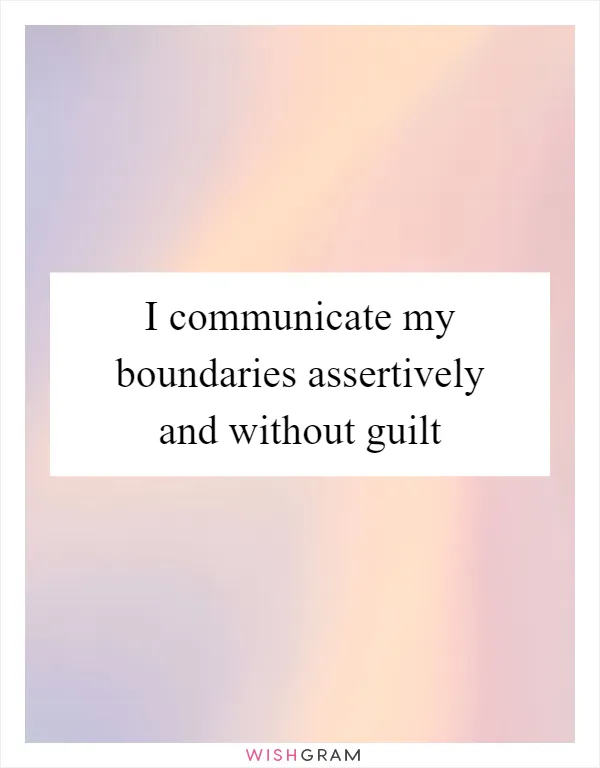I communicate my boundaries assertively and without guilt
Asserting your boundaries is an important part of maintaining healthy relationships. It can be difficult to communicate your boundaries without feeling guilty or worrying about how the other person will react. However, it is important to remember that you have the right to set boundaries and communicate them assertively.
When you communicate your boundaries assertively, you are expressing your needs and expectations clearly and confidently. This can help prevent misunderstandings and conflicts in your relationships. It also shows that you respect yourself and your own needs.
Assertive communication involves using clear and direct language to express your boundaries. You can start by using "I" statements to express how you feel and what you need. For example, you might say "I need some alone time right now" or "I don't feel comfortable discussing this topic".
It is important to avoid using language that is aggressive or passive. Aggressive language can come across as confrontational or hostile, while passive language can be unclear or easily dismissed. Assertive language is clear, direct, and respectful.
When you communicate your boundaries assertively, you may still feel guilty or worried about how the other person will react. However, it is important to remember that you are not responsible for their reactions. You are only responsible for expressing your own needs and expectations.
If the other person reacts negatively to your boundaries, it is important to stay calm and assertive. You can acknowledge their feelings while still maintaining your own boundaries. For example, you might say "I understand that you're upset, but I still need some space right now".
Remember that asserting your boundaries is not about controlling or manipulating others. It is about taking responsibility for your own needs and expectations. When you communicate your boundaries assertively, you are showing respect for yourself and for others.
So, repeat the affirmation: "I communicate my boundaries assertively and without guilt". Practice using assertive language in your relationships, and remember that you have the right to set boundaries that are healthy and respectful.
